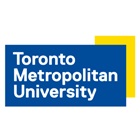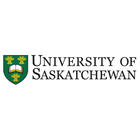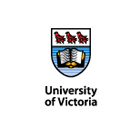- Engineering
Institute of Biomedical Engineering (BME)

Doctor of Philosophy (PhD)
The PhD program in Biomedical Engineering at the University of Toronto is a research-intensive program that immerses students in the application of biomedical sciences and engineering principles to advance solutions for challenges in human health. Students can be admitted to the PhD program through direct entry after completion of a bachelor’s degree or, alternatively, after the completion of a master’s degree. PhD students receive a guaranteed minimum stipend for four years.
Length of study
Four years (defined as the period for an academically well-prepared student to complete all program requirements while registered full-time).
Quick Navigation
Criteria for success.
The PhD program is designed to train students in becoming experts and leaders in research in any setting, such as (but not limited to) academic institutions, industry, non-governmental organizations, and government agencies. The core focus of a doctorate is the development and honing of five essential skills: 1) the acquisition of broad knowledge of the field and hands-on methodology; 2) the ability to create, design, and execute original, innovative and high-quality work; 3) the capacity for critical thinking and synthesis of new and complex ideas; 4) the effective communication of scientific results in all written, verbal and visual formats; and 5) adherence to the highest standards of ethics and integrity. The end-goal of the PhD training is to push the limits of current scientific knowledge, whether through solving previously unresolved questions or creating new solutions for yet-to-be-identified problems. Ideally, the research should be framed carefully within the context of the broader field, showing a deep and integrated understanding of the big picture and where the doctoral research fits.
In keeping with the expectations of most PhD programs in STEM in Canada and the United States, PhD candidates in Biomedical Engineering must meet the following requirements for successful completion of the program:
- Completion of compulsory coursework, training activities (e.g., regular supervisory meetings), and exams.
- A written dissertation that demonstrates strong scientific motivation and substantial, cohesive aims to support a rational scientific enquiry.
- An oral defense that demonstrates thorough knowledge of the field, methods employed, contributions to the field, and significance of the work.
- Three first-authored original peer-reviewed research articles published in the leading journals of the field. In many instances, these three articles correspond to the three scientific aims that comprise the main chapters of a cohesive dissertation.
Admission requirements
- Entry into PhD program after completion of a bachelor’s degree (i.e., direct entry) : A four-year bachelor’s degree in engineering, medicine, dentistry, physical sciences, or biological sciences, or its equivalent , with an average of at least 3.7 on a 4.0 grade point average scale (i.e., A minus) in the final two years of study from a recognized university ; or
- Entry into PhD program after completion of a master’s degree : A master’s degree in engineering, medicine, dentistry, physical sciences, or biological sciences, or its equivalent , with a cumulative average of at least 3.3 on a 4.0 grade point average scale (i.e., B plus) from a recognized university .
- Proof of English-language proficiency is required for all applicants educated outside of Canada whose native language is not English. View the BME English-language requirement policy to determine whether you are required to take a language test and for a list of accepted testing agencies and their minimum scores required for admission.
- Admission to the research program is for a designated role with a specific faculty supervisor .
- You don't need a supervisor when applying, but admission is competitive, and only candidates who have secured a research supervisor will be admitted.
- The supervisor (and co-supervisor, if applicable) must be a faculty member of BME ( core or cross-appointed ); faculty from other units cannot supervise BME students.
- MD/PhD candidates must apply through the MD program
- Possession of the minimum requirements for entry does not guarantee admission
- GRE score is not required
Application procedures
- Complete the online application (see requirements ) and pay the application fee
- Arrange for your English test score to be reported electronically to the University of Toronto by the testing agency if applicable. The institution code for U of T is 0982-00 (there is no need to specify a department)
- Contact the BME Graduate Office to identify your BME faculty supervisor
Rolling admission; multiple rounds with different enrollment capacity in each cycle
Tuition fees
Last updated: Nov., 2024
More information

© 2024 Faculty of Applied Science and Engineering
- U of T Home
- Accessibility
- Student Data Practices
- Website Feedback
Main navigation
- Graduate programs
- How to apply
- Research & supervision
- Student experience
- Connect with us
Biochemistry (PhD)
Program description.
The Doctor of Philosophy (Ph.D.) in Biochemistry offered by the Department of Biochemistry in the Faculty of Medicine & Health Sciences is a research-intensive program that emphasizes cutting-edge and experiential learning opportunities. The program's objective is to equip students with skills in literature synthesis, resourceful thinking, and the presentation of complex ideas to pursue professional opportunities in academia or industry.
Keywords: Cancer, Structural Biology, Biophysics, RNA, Infectious Diseases, Genomics, Metabolism, Stem Cells, Molecular Medicine, Drug Development, Cell Signalling, Signal Transduction, Cell Biology, Membrane Trafficking, Development, Gene and Protein Expression, RNAi, DNA replication, mRNA Translation, Computational Bioinformatics, Antibiotic Resistance, Epigenetics.
Unique Program Features
- Students gain in-depth expertise in biochemistry and the biomedical sciences, with the opportunity to carry out research projects at a world-class level and build collaborations with other leading research groups;
- The program has a Harmonized Stipend Policy to ensure students are paid an adequate stipend;
- Students may focus their research work on Cancer/Molecular Oncology, Structural Biology, RNA/Infectious Diseases, Genomics, or Stem Cells and Regenerative Medicine;
- Students benefit from access to world class facilities including the Bellini Life Sciences Building, Rosalind and Morris Goodman Cancer Research Institute, and the McIntyre Medical Sciences Building, together comprising one of the best-equipped research facilities in Canada;
- Graduates pursue their careers as leaders in the basic health sciences in industry, the public sector, or academia.
University-Level Admission Requirements
- An eligible Bachelor's degree with a minimum 3.0 GPA out of a possible 4.0 GPA
- English-language proficiency
Each program has specific admission requirements including required application documents. Please visit the program website for more details.
Visit our Educational credentials and grade equivalencies and English language proficiency webpages for additional information.
Program Website
PhD in Biochemistry website
Department Contact
Graduate Program christine.laberge [at] mcgill.ca (subject: PhD%20in%20Biochemistry) (email)
Available Intakes
Application deadlines.
Note : Application deadlines are subject to change without notice. Please check the application portal for the most up-to-date information.
Application Resources
- Application Steps webpage
- Submit Your Application webpage
- Connecting with a supervisor webpage
- Graduate Funding webpage
Application Workshops
Consult our full list of our virtual application-focused workshops on the Events webpage.

Department and University Information
Graduate and postdoctoral studies.
- Skip to main content

- All countries /
- North America /
- All study levels /
- Postgraduate /
- Applied and Pure Sciences /
- Biomedical Sciences
15 Universities in Canada offering Postgraduate Biomedical Sciences degrees and courses
More Information
Are you looking for Postgraduate courses in Biomedical Sciences? Here you can find course providers offering full-time, part-time, online or distance learning options.
You've reached your limit of 10 Favourites
University of Alberta
THE World Ranking: 109
University of Guelph
THE World Ranking: 401
University of Manitoba
THE World Ranking: 351

Toronto Metropolitan University
THE World Ranking: 601

Simon Fraser University
THE World Ranking: 251

University of Saskatchewan

McGill University (Continuing Education)
THE World Ranking: 49

Queen's University

Dalhousie University
THE World Ranking: 301

University of Ottawa
THE World Ranking: 177

University of Victoria

University of Windsor
THE World Ranking: 501
- Biomedical Technology
- Medical Biochemistry
- Medical Microbiology
- British Columbia
- Nova Scotia
- Saskatchewan
- Study level:
- Postgraduate
- Graduate Certificates & Diplomas
- Masters Degrees
- Doctoral Degrees
- Pre-masters
- Study mode:
Filter your results
Tell us about you.
- Nationality Select country Select country
- My current qualification is from Select country Yes No Select country Select country
- Current qualification {0} is not applicable for the study level you selected below. Qualification Qualification
- Grade type (only one grade type for your qualification) Grade type Grade type
- My score (current or expected) Please select Please select Please select Please select Please select Please select
Tell us your preferences
- Subject Biomedical Sciences
- Qualification Postgraduate
- Destination Canada
- Study options
- Annual tuition fees
Subject areas
Qualification, destination.


IMAGES
VIDEO
COMMENTS
Find the best PhD programmes in the field of Biomedical Science from top universities in Canada. Check all 8 programmes.
This page shows a selection of the available English-taught PhDs programmes in Biomedical Science in Canada, as well as help on finding scholarships, admissions essentials and the best universities for you to study at.
The PhD program in Biomedical Engineering at the University of Toronto is a research-intensive program that immerses students in the application of biomedical sciences and engineering principles to advance solutions for challenges in human health.
The Doctor of Philosophy (Ph.D.) in Biological and Biomedical Engineering offered by the Department of Bioengineering (Faculty of Engineering) and Biomedical Engineering (Faculty of Medicine & Health Sciences) is a research-intensive program that emphasizes stimulating and hands-on learning opportunities. The program's objective is to equip ...
Explore undergraduate and graduate programs in the biomedical sciences. We are composed of 172 core faculty members and more than 234 associate members across the nine units of our School.
The Doctor of Philosophy (Ph.D.) in Biochemistry offered by the Department of Biochemistry in the Faculty of Medicine & Health Sciences is a research-intensive program that emphasizes cutting-edge and experiential learning opportunities.
15 Universities in Canada offering postgraduate Biomedical Sciences degrees and courses. Plan your studies abroad now.
As an internationally recognized research training environment, BBS offers comprehensive and exciting graduate programs in the biomedical sciences through its MSc, PhD and MD/PhD degree offerings.
Carleton’s PhD program in Biomedical Engineering addresses this demand. Students solve advanced biomedical problems through a combination of thesis research, coursework, directed and individual study, and various forms of oral and written presentations.
Discover the best Biomedical Science PhD programs for 2023-2024. Explore requirements and accredited schools to advance your career in health sciences in Canada.